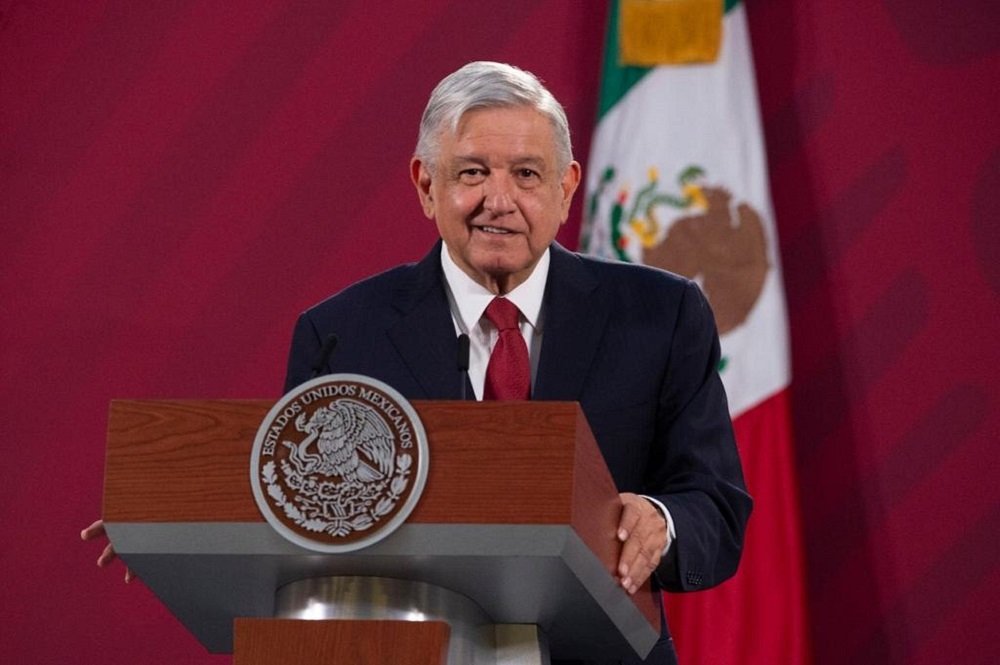
In a stunning reversal, the Department of Justice announced it would drop charges against former Mexican defense minister Salvador Cienfuegos just one month after the US arrested him for allegedly colluding with drug cartels. Notably, the decision was motivated by “important foreign policy considerations” and not doubts about the strength of the evidence. The case of catch and release around Cienfuegos reveals a deeper dysfunction in US-Mexico security cooperation and the failure of both countries to face the uncomfortable realities of cartel corruption.
Reports indicate that Cienfuegos’ arrest left Mexican officials indignant over not being informed about the investigation and threatened to eject the DEA from the country, essentially lighting US-Mexico security cooperation on fire, if Cienfuegos was not returned.
Why would President Andrés Manuel López Obrador, a self-styled anti-corruption crusader who openly aims to prosecute his predecessors, push back so aggressively against the US prosecution of his predecessor’s defense minister? Certainly, Mexican nationalism was at play. Seeing one of the country’s most powerful officials in a US courtroom paints the Mexican government as impotent and even subservient, particularly given that officials were apparently oblivious to the investigation.

Political corruption implicating López Obrador or his closest
allies is not inconceivable. But a more likely explanation is the desire to ensure
the stability and loyalty of the armed forces, a widely trusted institution
central to López Obrador’s broader political project. If Cienfuegos were to
reveal a web of corruption in Mexico’s armed forces, it could hobble the
military and jeopardize its central role in domestic security.
For Washington, defusing a credible threat to eject the DEA
from Mexico and saving the bilateral relationship from a back-and-forth of
escalating retribution is the clear priority. Nonetheless, the losing
Cienfuegos is a major blow to the urgent goal of rooting out cartel corruption from
Mexico’s security forces. It also shows the essential role that the US must
play in addressing Mexico’s corruption blind spots.
Now, in a Mexican judicial system plagued by impunity, the
prospects for a successful Cienfuegos prosecution are slim, and it is even less
likely that he will reveal a broader web of corruption.
The history of intelligence leaks by corrupt Mexican security officials explains why US investigators kept Mexico out of the loop on Cienfuegos and reveals why cartel corruption is so detrimental for US security. Leaked US intelligence shared with Mexican officials reportedly helped notorious drug trafficker El Chapo Guzman evade capture on multiple occasions. In other recent cases, the identities of confidential informants were compromised after intelligence was shared with Mexican authorities. Cienfuegos himself was accused of sharing sensitive US intelligence with cartels. There is little doubt that alerting Mexican authorities about the US investigation into Cienfuegos would have also compromised the effort.
The US investigators and prosecutors behind the Cienfuegos case understood that corruption in Mexico, particularly in the security forces, poses a direct threat to US and Mexican security that cannot be ignored. The failure to truly address security corruption has brought Mexico record levels of violence and a consistently massive outflow of illicit drugs.
Despite the Cienfuegos incident, López Obrador’s presidency may still be the best opportunity in years to go after cartel corruption. The Mexican government will have to be a partner in this effort, and the US will have to push Mexican officials past their comfort zone in rooting out corruption. To start, the Treasury Department should explore sanctioning Cienfuegos, thereby exerting additional pressure for his prosecution. Beyond this case, Treasury, the DEA, and other US agencies should redouble efforts to investigate, sanction, and (where possible) prosecute Mexican security and judicial officials corrupted by the cartels. The US should also carefully enlist Mexican investigators and prosecutors while not shying away from going after targets that the Mexican government won’t touch.
If nothing else, the Cienfuegos case shows that, to have any hope of turning the tide against the cartels, the US and honorable Mexican officials need to have reliable partners and institutions on their side. Now is the time for both countries to get serious about the challenge.
The post Cienfuegos catch and release reveals dysfunction in US-Mexico security cooperation appeared first on American Enterprise Institute – AEI.
